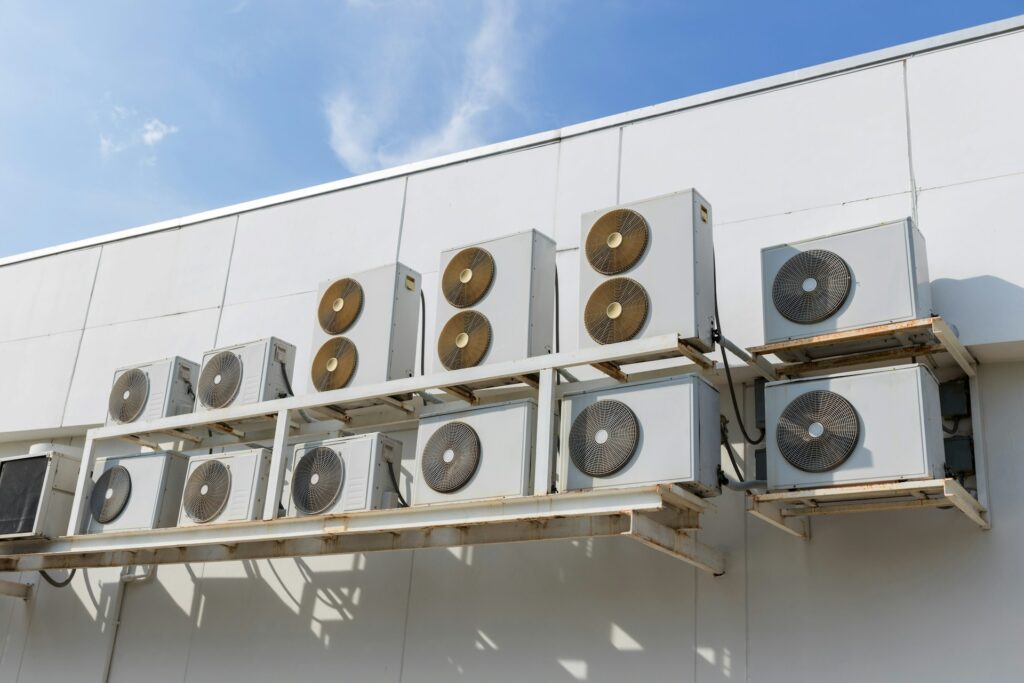Given their ability to both heat and cool your home, heat pumps are becoming an increasingly popular HVAC solution for homeowners seeking energy-efficient and versatile systems. As a full-service, licensed heating and air conditioning company, we understand the importance of maximizing your heat pump’s efficiency to ensure you get the most out of your investment. Optimal heat pump efficiency reduces energy consumption, lowers utility bills, and increases comfort for you and your family.
Today, AirPoint Heating & Air Conditioning will explore several expert tips for optimizing your heat pump’s performance, helping you maintain efficiency levels and prolong the lifespan of your system. By incorporating these strategies and staying proactive with system maintenance, you can enjoy the many benefits that heat pump systems offer while maximizing the return on your investment.
1. Ensure Proper Installation and Sizing
Optimizing your heat pump’s performance begins with ensuring that the system is properly sized and installed for your home’s specific needs. A system that is too large or too small for your space can lead to inefficiency, inadequate temperature control, and a decreased lifespan. To ensure optimal sizing, working with a professional HVAC technician from AirPoint Heating & Air Conditioning can accurately assess your home’s heating and cooling needs and recommend the appropriate system, which is crucial.
2. Regular Maintenance is Key
Regular maintenance is essential to maintain your heat pump’s efficiency and ensure peak performance. A well-maintained system can run more smoothly, reduce energy consumption, and prolong the unit’s lifespan. Essential maintenance tasks include:
– Inspect and clean or replace air filters regularly, at least every 1-3 months, depending on the type and use of the filter.
– Check and clean the indoor and outdoor coils to remove any accumulated dirt, debris, or foliage that can obstruct airflow and decrease efficiency.
– Inspect and adjust the fan motor and fan blades to ensure optimal operation and air circulation.
– Verify the proper functioning of the thermostat and make adjustments, if necessary.
Engaging the services of a professional HVAC technician to perform a comprehensive annual maintenance check is highly recommended. This helps ensure that your system is running efficiently and any potential issues are addressed before they escalate.
3. Optimize Thermostat Settings
The thermostat settings play a crucial role in the efficiency of your heat pump system. To maximize performance, consider the following tips:
– Set your thermostat to a consistent temperature and avoid frequent temperature changes. This practice enables your heat pump to maintain a steady indoor climate, optimizing energy consumption and reducing system strain.
– During colder months, set your thermostat to a lower temperature while you’re asleep or away from home to conserve energy. Similarly, set it to a higher temperature during warmer months when you’re not at home.
– Switch to a programmable or smart thermostat, which can automatically adjust temperature settings based on your daily routines or preferences. This can help conserve energy and maintain a comfortable indoor environment.
4. Insulate and Seal Your Home
A well-insulated and sealed home can significantly improve the efficiency of your heat pump system by minimizing heat loss and reducing the workload of the system. Here are some steps you can take to enhance your home’s insulation and seal:
– Ensure proper insulation in your home’s walls, attic, and crawl spaces to reduce heat transfer and maintain indoor temperatures.
– Seal gaps or cracks around windows, doors, and other openings to minimize drafts and prevent conditioned air from escaping.
– Install weatherstripping around doors and windows to enhance air sealing and reduce drafts.
– If necessary, check and repair any damage to your home’s ductwork to prevent air leaks and maintain system efficiency.
5. Opt for Energy-Efficient Features and Accessories
Investing in energy-efficient features and accessories can enhance your heat pump’s performance and optimize overall energy consumption. Some options include:
– Variable speed compressors, which can adjust the speed of operation depending on the system’s load requirements, improving efficiency and comfort.
– Two-stage heat pumps, which feature two levels of operation – high and low – for better temperature control and energy savings.
– Desuperheaters, which can recover waste heat from the cooling process and use it to heat water, further improving overall system efficiency.
6. Protect Your Outdoor Unit
The outdoor unit of your heat pump system, also known as the condenser, plays a significant role in the system’s overall efficiency. To ensure its optimal performance, protect and maintain your outdoor unit by:
– Positioning the unit away from direct sunlight or in a shaded area to minimize heat exposure and improve cooling efficiency.
– Regularly remove debris, leaves, or snow around the unit to maintain proper airflow and distribution.
– Considering using a protective cover during extreme weather conditions, such as heavy snow, to safeguard the unit from damage.
Experience Optimal Comfort with an Efficient Heat Pump System
Maximizing your heat pump’s efficiency through proper installation, regular maintenance, insulation, thermostat settings, and investing in energy-efficient features plays a crucial role in optimizing your system’s performance. Not only will these practices help you save on energy costs, but they’ll also enhance your overall comfort and extend your system’s lifespan.
Our expert technicians at AirPoint Heating & Air Conditioning are here to assist you in optimizing your heat pump in West Garden Grove, CA. From installation and maintenance to recommending energy-efficient solutions and accessories, we are committed to ensuring your home’s comfort and energy savings. Don’t hesitate to reach out to us for more information or to schedule an appointment today and experience the benefits of an optimally performing heat pump system in your home.





